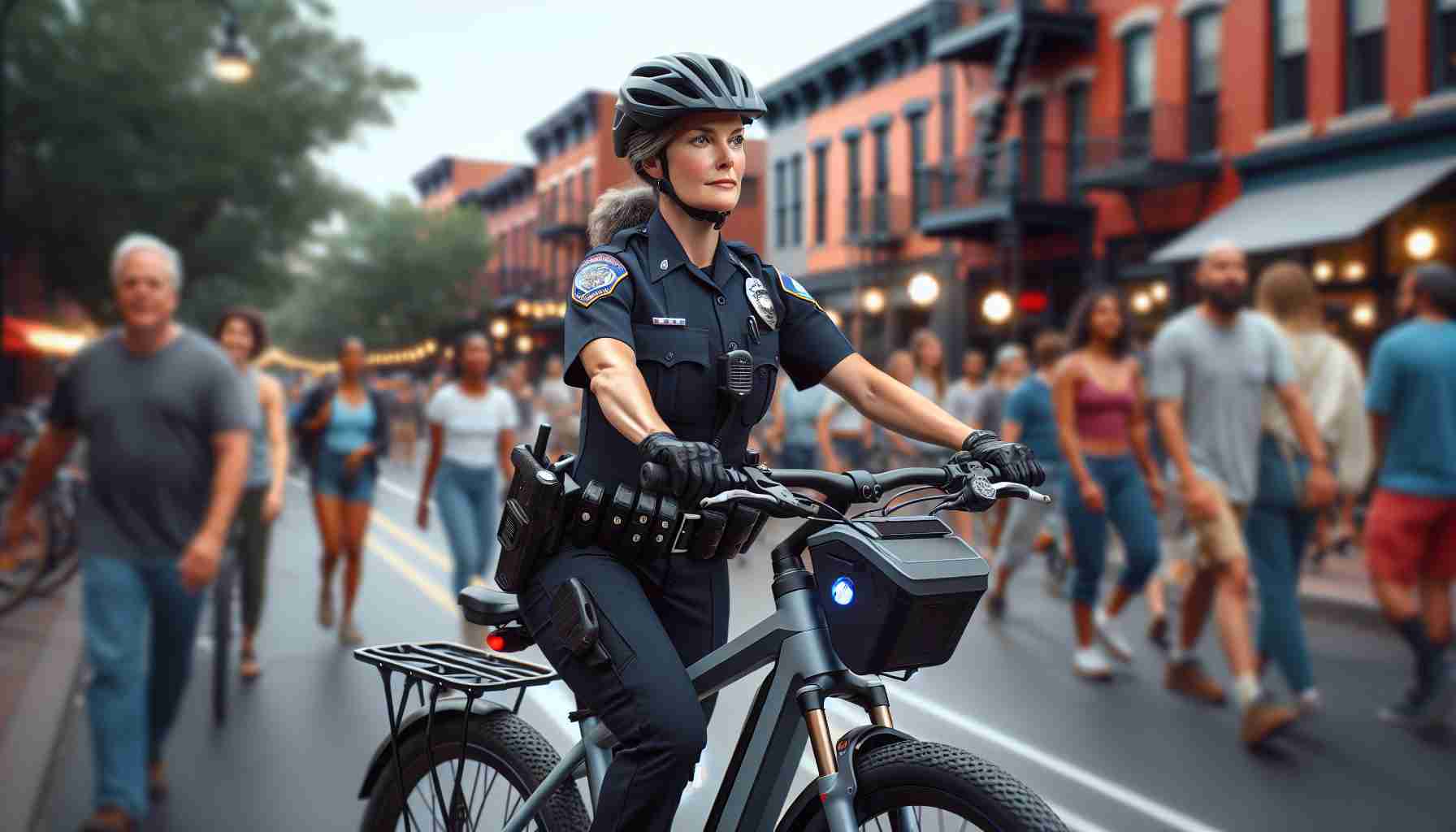In a bid to enhance community engagement and promote a sense of accessibility, the Boulder Police Department has introduced a new fleet of e-bikes for downtown patrols. These electronic bikes, equipped with lights and sirens, have proven to be an effective tool for officers on the beat.
One remarkable incident occurred when officers on e-bikes apprehended an individual smoking fentanyl, allowing for the immediate seizure of the illegal substance. Since their introduction in late March, the e-bikes have also been utilized for traffic stops and providing medical assistance. In fact, an officer on an e-bike recently played a critical role in responding to a heart attack, administering CPR and effectively saving the person’s life.
Apart from their practical uses, these e-bikes have become conversation-starters within the community. Officer Richard Steidell, an avid rider, explained, “The public absolutely loves it. I lose count on how many people stop to say hi to us and to check out the bike.” This positive interaction not only fosters a welcoming environment but also allows officers to build stronger connections with the community they serve.
The e-bikes, costing approximately $8,000 each, are versatile, capable of navigating city streets and mountain trails alike. With an electric charge lasting at least 10 hours, officers can rely on them for an entire shift. Additionally, the bikes are equipped with Narcan and Automated External Defibrillators, enabling officers to respond promptly to drug overdoses and cardiac emergencies.
Notably, the e-bikes provide officers with increased mobility, enabling them to reach locations swiftly and efficiently. Officer Steidell highlights the benefits, stating, “It’s a lot of fun to ride the bike at work. It boosts morale, plus you get to engage with everyone, and you’re a lot more approachable being on a bike instead of in a patrol car with the windows up.”
Overall, the introduction of e-bike patrols in Boulder has proven to be a valuable and community-centered approach to law enforcement. By bridging the gap between officers and residents, these e-bikes contribute to a safer, more connected city.
The introduction of e-bike patrols in Boulder is part of a larger trend in the law enforcement industry. Police departments across the country are increasingly adopting electric bikes as a cost-effective and environmentally friendly means of community policing. E-bikes provide officers with the ability to navigate urban environments more easily than traditional patrol cars, allowing them to access areas that may be inaccessible to larger vehicles.
Market forecasts indicate that the e-bike industry is poised for significant growth in the coming years. Factors such as increasing urbanization, rising awareness of environmental issues, and advancements in battery technology are fueling the demand for e-bikes in various sectors, including law enforcement. According to a report by Statista, the global e-bike market is expected to reach a value of $46 billion by 2026.
However, the adoption of e-bike patrols is not without its challenges. One primary concern is the safety of officers riding e-bikes in high-traffic areas. Although these bikes are equipped with lights and sirens, they may still be vulnerable to accidents. Proper training and awareness campaigns are essential to mitigate these risks and ensure the safety of both officers and pedestrians.
In terms of cost, the initial investment for e-bikes can be significant. Each e-bike used by the Boulder Police Department costs approximately $8,000. However, proponents argue that the long-term benefits, such as reduced fuel costs and maintenance expenses, outweigh the upfront investment.
Furthermore, as e-bikes become more prevalent in law enforcement, issues related to their maintenance and infrastructure will need to be addressed. This includes establishing charging stations and ensuring a reliable supply of replacement parts to keep the e-bikes operational.
While the e-bike patrols in Boulder have received positive feedback from the community, it’s important to note that the effectiveness of these patrols may vary depending on the city’s layout and population density. Each police department needs to assess their unique needs and determine if e-bike patrols are a suitable addition to their law enforcement strategies.
For more information on the e-bike industry and market forecasts, you can visit Statista’s e-bike market analysis.







